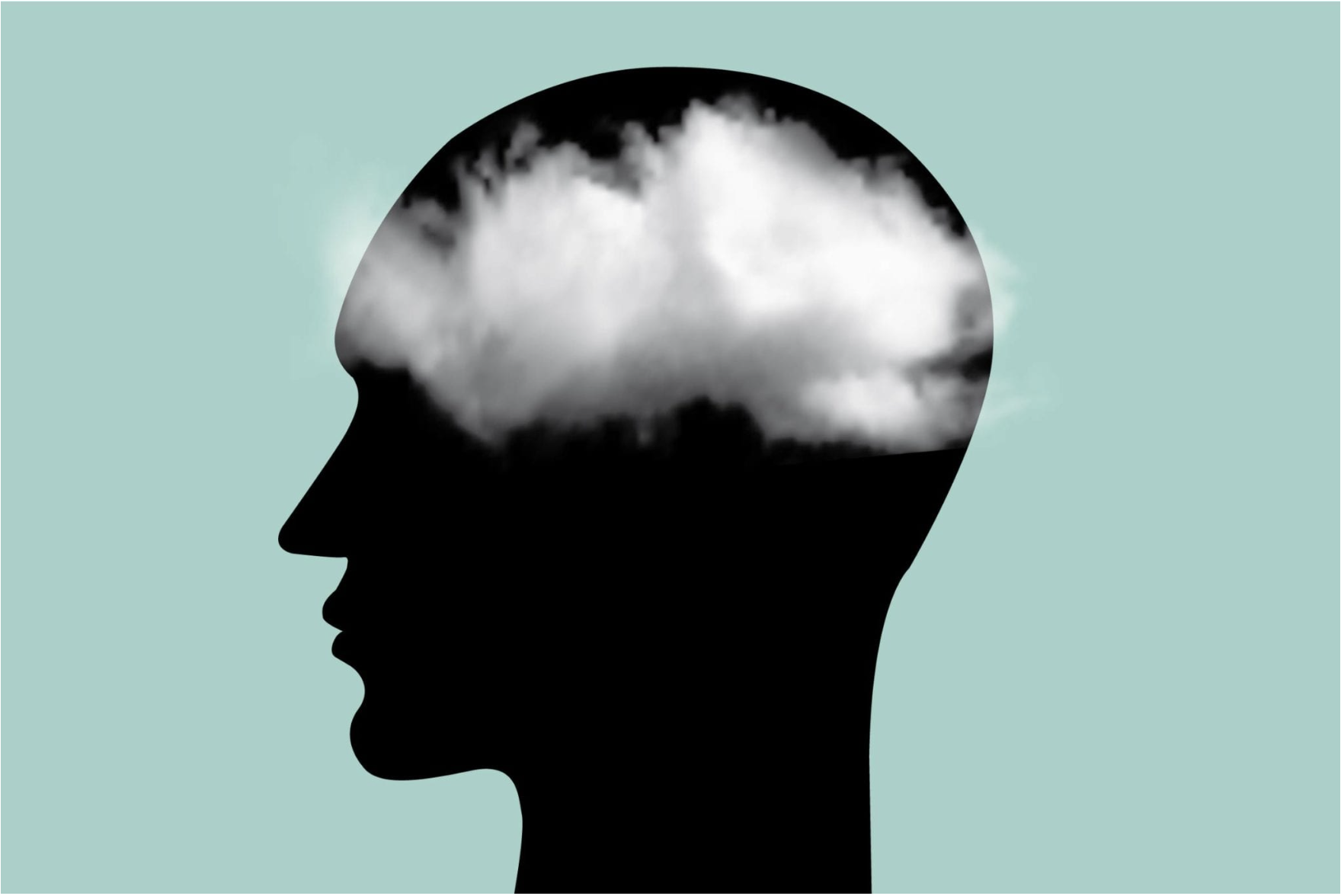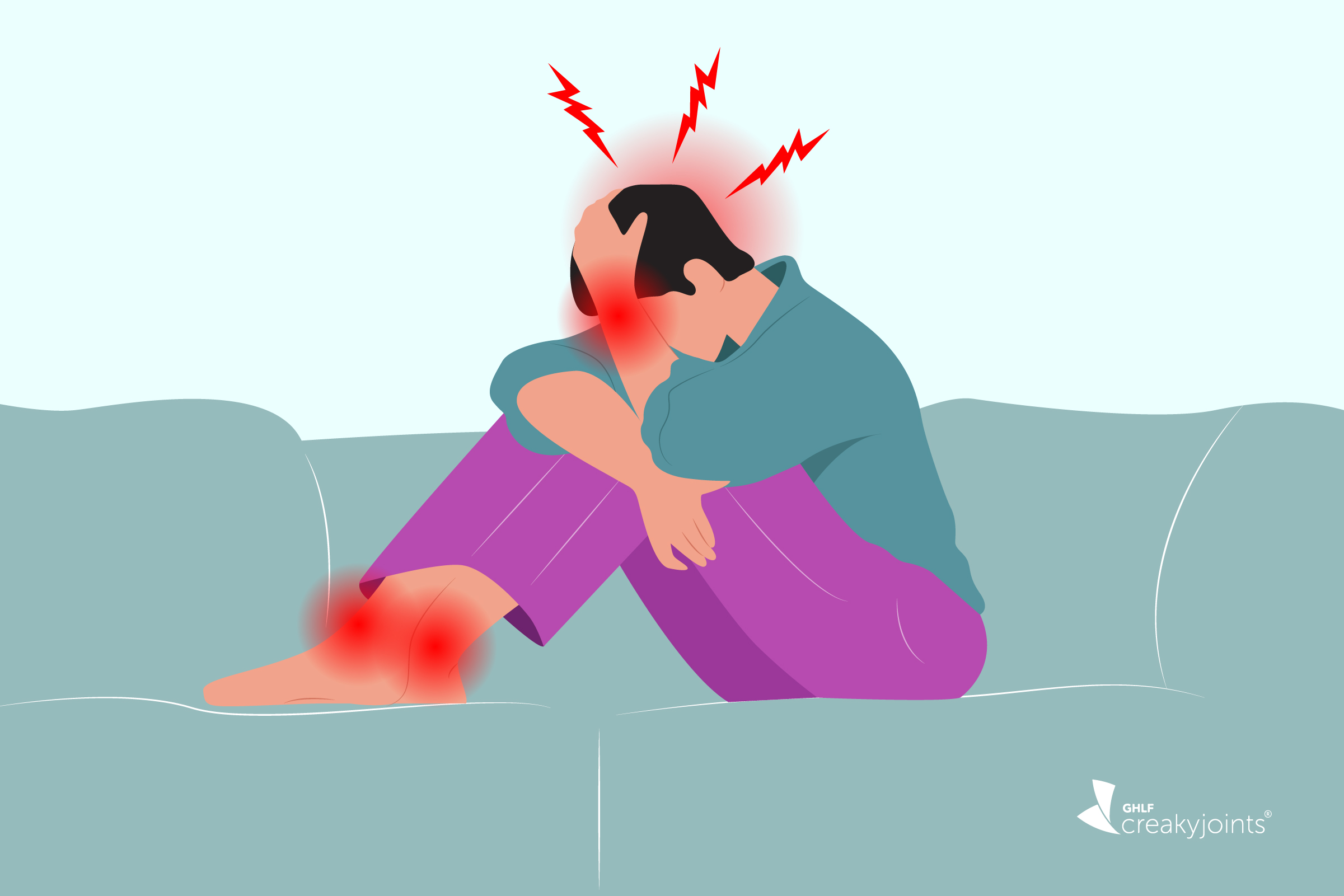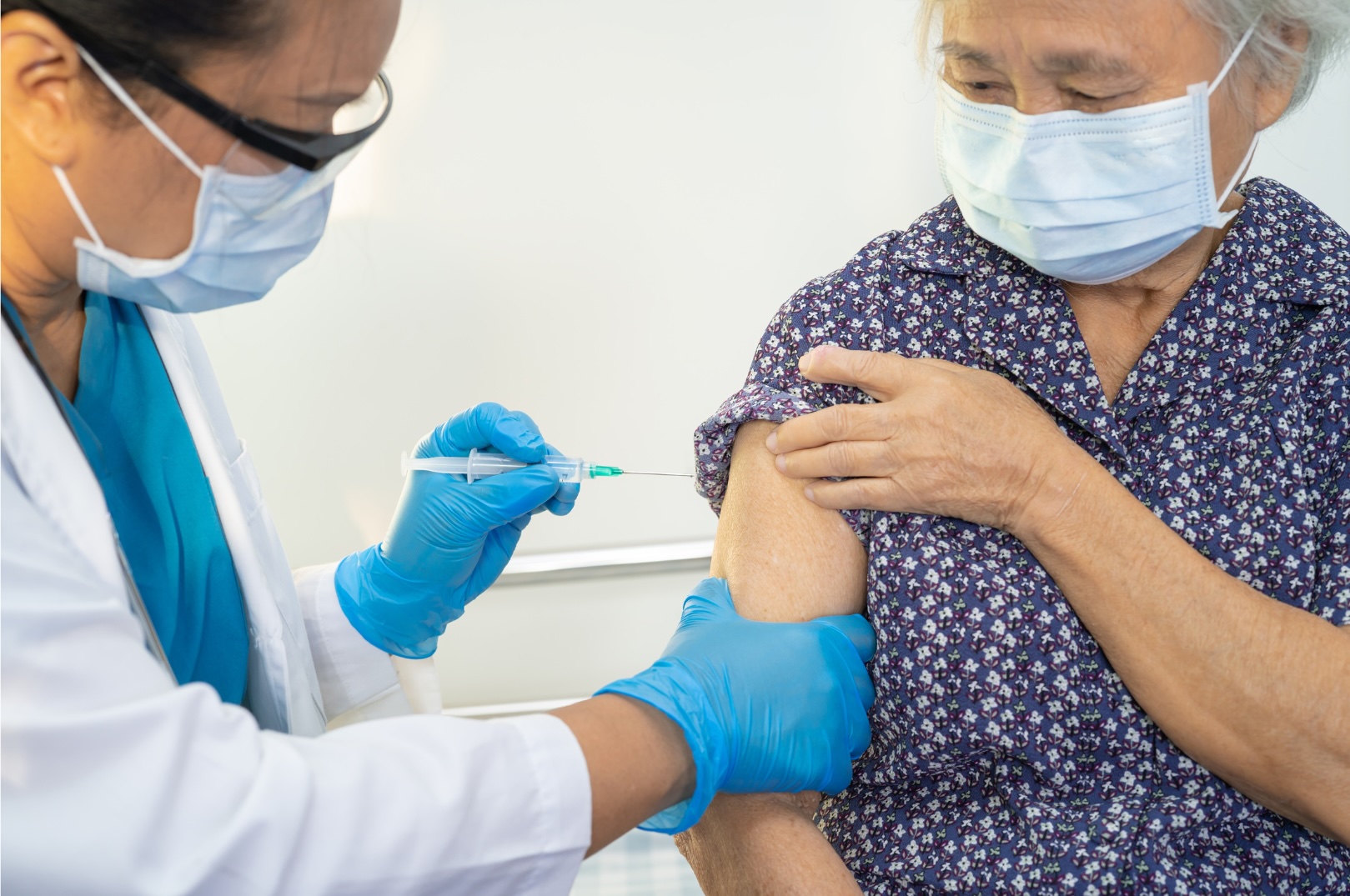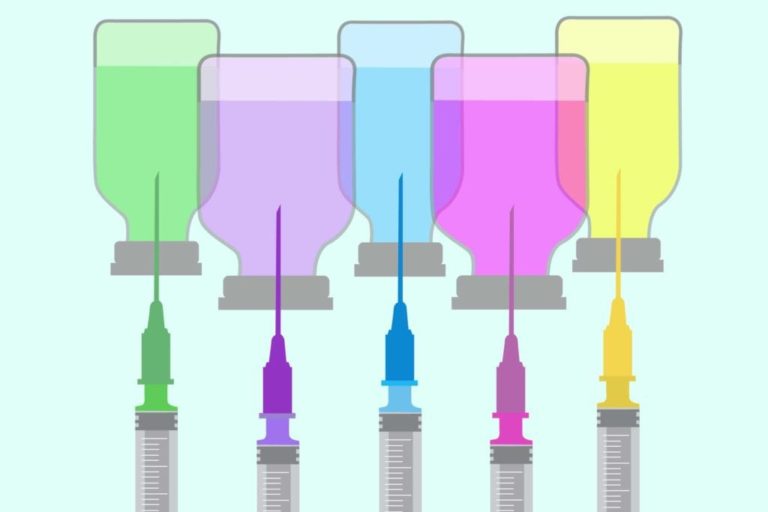Enhancing Adult Vaccine Uptake: Challenges in Shared Clinical Decision Making and Risk-Based Recommendations
8 Myths and Facts About Vaccines: What You Really Need to Know
8 Myths and Facts About Vaccines: What You Really Need to Know
Vaccines save lives, but myths about them can spread fear. Here’s how to separate fact from fiction.
October 18, 2024
GHLF STAFF
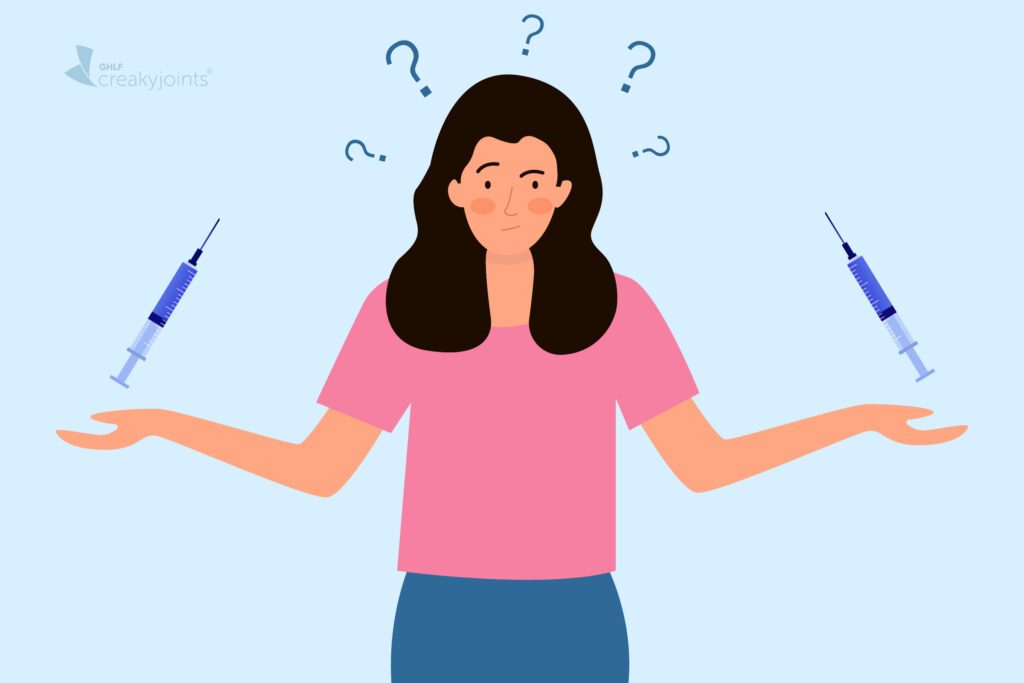
Vaccines have been saving lives for decades, but myths and misconceptions continue to cause confusion, especially for people with chronic illnesses. In this article, we tackle some of the most common vaccine myths and provide clear facts to help you make informed health decisions.
Let’s explore the truth behind the rumors so you can feel more confident about getting vaccinated.
Myth 1: Vaccines Cause Autism
This is one of the most persistent and harmful myths. The false belief that vaccines cause autism comes from a study published in the late 1990s, which was later proven fraudulent. The author lost his medical license for ethical violations.
“There is no credible scientific evidence linking vaccines to autism,” says Samantha Picking, PharmD, Director of Immunization at Walgreens. “Multiple large-scale studies, including those by the CDC and the Institute of Medicine, confirm that vaccines do not cause autism.”
Myth 2: Vaccines Can Cause the Disease They Are Meant to Prevent
Some worry that getting a vaccine could give them the illness they’re trying to avoid. For example, they fear getting the flu from a flu shot. This is not possible.
Many vaccines are made with inactivated or dead viruses, so they cannot cause the disease. Others use live but weakened viruses.
“They need to replicate enough for your body to recognize them as foreign, triggering an immune response,” explains Dr. Edith Mirzaian, Associate Professor of Clinical Pharmacy at the University of Southern California. “But they are weakened to the point where they cannot replicate enough to cause disease.”
Mild side effects like a sore arm or slight fever are common after vaccines. These don’t mean you’ve caught the illness — they just mean your body is building immunity.
Myth 3: Natural Immunity Is Better Than Vaccine-Induced Immunity
While it’s true that you can develop natural immunity after infection, the risks are much higher than with vaccination.
“Vaccines provide a safe way to build immunity without suffering the harmful effects of the disease,” says Picking. “If you catch the flu naturally, for example, you could face severe complications, hospitalization, or even death.”
Vaccines give you protection without the dangerous consequences of getting sick.
Myth 4: Receiving Multiple Vaccines Can Overload Your Immune System
Some people worry that getting multiple vaccines at once could overwhelm their immune system. Vaccines are only a tiny fraction of what your immune system handles every day.
“Our immune systems are incredible,” says Picking. “They can deal with thousands of antigens every day without us even realizing it. Getting multiple vaccines at once won’t overload your immune system — it’s designed to handle it.”
Vaccines are thoroughly tested to make sure they are safe and effective, even when given together.
Myth 5: The COVID-19 Vaccine Was Rushed and Isn’t Safe
Some people think that the COVID-19 vaccine was developed too quickly to be safe. The truth is the timeline wasn’t as rushed as it might seem. The virus that causes COVID-19, SARS-CoV-2, was first isolated in 2019, so scientists were already working behind the scenes before the pandemic escalated. This early work allowed for faster testing and development once the pandemic was in full swing.
“The virus was isolated in 2019, so we already knew what it was,” explains Samantha Picking, PharmD. “Very sophisticated but widely used technologies were employed to replicate the virus and start testing it. All of this background work was happening while COVID-19 was still brewing, so the vaccine went through the same processes that every other vaccine goes through before reaching the market.”
Another thing to note is that while the COVID-19 vaccine was the first mRNA vaccine to be approved, the science behind the technology isn’t new. Scientists have been studying it for many years to treat other diseases, like cancer and infections. This research gave them a big head start when it came to making the COVID-19 vaccine.
Myth 6: Vaccines Cause Severe Side Effects
While all vaccines carry the potential for side effects, severe reactions are extremely rare. Most side effects are mild, such as soreness at the injection site or a low-grade fever.
“Severe side effects from vaccines are extremely rare,” says Picking. “The benefits of vaccination far outweigh the small risk of any side effects.”
Remember, mild side effects mean the vaccine is working. If you’re ever concerned, talk to your health care provider.
Myth 7: Vaccine-Preventable Diseases Aren’t That Serious
Many people underestimate the seriousness of vaccine-preventable diseases. However, these illnesses can cause severe complications, especially in people with chronic conditions or weakened immune systems.
“Communities like Black, Hispanic, and Native American populations experience higher rates of severe illness and hospitalization from the flu, often due to lower vaccination rates and socioeconomic challenges,” Picking notes.
“Flu, RSV, COVID-19, and pneumonia are all serious illnesses that can lead to severe complications or even death,” Picking emphasizes. “Vaccination is crucial to protect not only yourself but also those in your community who may be at higher risk.”
Myth 8: You Can Only Get Vaccinated in Your Doctor’s Office
A common misconception is that vaccinations can only be given in a doctor’s office, but pharmacists have become some of the most accessible and trusted sources for vaccines.
“People have easy access to their pharmacists, especially if they regularly go to the same pharmacy and have a relationship with their pharmacist,” says Dr. Mirzaian. Pharmacists are a great source of information.
Pharmacies are more convenient than doctor’s offices for many people. “About 90% of people live within five miles of a pharmacy, and 50% live within just a mile,” says Dr. Mirzaian.
They also often have longer hours and are easier to access for people with transportation challenges, hourly jobs, non-traditional work schedules, or childcare. “Not everyone has a car, and public transportation can be tricky,” Dr. Mirzaian explains. “Pharmacies help by being more accessible for many.”
So, while your doctor’s office is one option, don’t overlook the convenience and expertise of your local pharmacy.
The takeaway is simple: “Getting vaccinated is one of the most important things you can do to protect yourself and those around you,” says Picking. It’s essential to have a conversation with your health care provider to understand which vaccines are best for you and your health needs.
For more reliable information on vaccines and their safety, consult your health care provider or trusted sources like the Centers for Disease Control and Prevention or the World Health Organization.
Informed Immunity
Informed Immunity is a podcast series dedicated to providing clear, evidence-based information on vaccines and public health. Our episodes cover important topics like vaccine equity, debunking myths, and the latest advancements in research. Listen now to empower yourself with the knowledge you need to make informed health decisions.
This article was made possible with support from GSK.
Source:
Berenbrok, L, et al. Access to community pharmacies: A nationwide geographic information systems cross-sectional analysis. Journal of the American Pharmacists Association. Volume 62, Issue 6, 1816 – 1822. https://www.japha.org/article/S1544-3191(22)00233-3/fulltext
Davidson, M. “Vaccination as a Cause of Autism — Myths and Controversies.” Dialogues in Clinical Neuroscience. December 2017. doi: https://doi.org/10.31887/DCNS.2017.19.4/mdavidson.
SUBSCRIBE TO GHLF
RELATED POST AND PAGES
_
Was this article helpful?
YesNo


